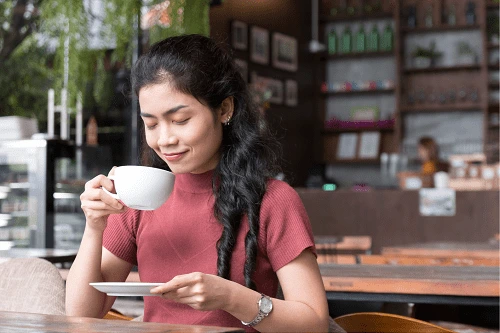Coffee
What is the Best Way to Drink Coffee
What is the Best Way to Drink Coffee?
Coffee is one of the most popular beverages around the world, loved for its rich aroma and energizing effects. Whether you’re a casual coffee drinker or a dedicated enthusiast, you may have wondered about the best way to enjoy this beloved drink. In this article, we will explore various aspects of coffee consumption and discuss the best practices to enhance your coffee-drinking experience.
1. Introduction
Coffee has become an integral part of many people’s daily routine. Whether it’s sipping a cup in the morning to kickstart the day or enjoying a cozy afternoon break, the way you drink coffee can greatly impact the taste and overall experience. Let’s explore the best practices that will help you make the most of your coffee-drinking moments.
2. Understanding Coffee Varieties
Coffee comes in a wide range of varieties, each with its unique flavor profile and characteristics. It’s essential to understand the different types of coffee beans, such as Arabica and Robusta, and how they contribute to the taste of your brew. By selecting the right coffee variety, you can enhance your overall coffee-drinking experience.
3. Choosing Quality Coffee Beans
To enjoy the best cup of coffee, start by choosing high-quality coffee beans. Look for beans that are freshly roasted and sourced from reputable coffee producers. Pay attention to the origin, roast level, and flavor notes mentioned on the packaging to find the perfect coffee beans for your taste preferences.
4. Grinding Coffee Beans: Freshness Matters
Investing in a good quality coffee grinder and grinding your beans just before brewing can significantly improve the flavor of your coffee. Freshly ground coffee beans release more aromatic oils, resulting in a more flavorful and aromatic cup of coffee. Experiment with different grind sizes to find the optimal one for your preferred brewing method.
5. Water: The Foundation of Great Coffee
Water is a crucial element in coffee brewing, often overlooked by many. Using high-quality filtered water with balanced mineral content can make a remarkable difference in the taste of your coffee. Avoid using distilled or heavily chlorinated water, as they can negatively affect the flavors.
6. Brewing Methods and Techniques
There are various brewing methods available, such as pour-over, French press, espresso, Aero press, MokaPot, South Indian Filter and more. Each method has its unique characteristics and brings out different flavors in the coffee. Explore different brewing techniques to find the one that suits your taste preferences and allows you to enjoy the full potential of your coffee beans.
7. Perfecting the Coffee-to-Water Ratio
Finding the right coffee-to-water ratio is essential for a well-balanced cup of coffee. A general guideline is to use 1 to 2 tablespoons of coffee grounds for every 180 ml (6 ounces) of water. However, feel free to adjust this ratio based on your personal taste preferences. Experiment with different ratios to find your perfect balance.
8. Water Temperature and Extraction
Water temperature plays a vital role in coffee extraction. The ideal temperature for brewing coffee is between 195°F and 205°F (90°C and 96°C). Avoid using boiling water as it can lead to over-extraction and bitter flavors. Maintaining the correct water temperature throughout the brewing process ensures optimal extraction and a well-rounded cup of coffee.
9. The Art of Proper Brewing Time
Different brewing methods require different brewing times. Some methods, like espresso, have shorter brew times, while others, like cold brew, require longer steeping periods. Pay attention to the recommended brewing time for your chosen brewing method to achieve the best results.
10. The Importance of Clean Equipment
Keeping your coffee equipment clean is essential to prevent any residual flavors or oils from impacting the taste of your coffee. Regularly clean your coffee grinder, brewing equipment, and accessories to maintain the integrity of each brew. This practice ensures that each cup of coffee is as flavorful and enjoyable as the last.
11. Mindful Coffee Drinking
Savoring the aroma, flavor, and texture of coffee can transform your coffee-drinking experience. Take a moment to fully immerse yourself in the sensory delight that coffee offers. Engage your senses, appreciate the nuances, and let each sip bring you joy and relaxation.
12. Pairing Coffee with Food
Pairing coffee with food can enhance both the flavors of the coffee and the culinary experience. Just as wine complements certain dishes, coffee can be paired with desserts, cheeses, chocolates, and more. Experiment with different combinations to discover delightful taste pairings that elevate your coffee and food enjoyment.
13. Experimenting with Coffee Additions
While enjoying coffee in its purest form is a delight, adding various ingredients can create unique flavor profiles. From milk and cream to spices and syrups, there are countless options to personalize your coffee. Be adventurous and try different additions to find your perfect cup of coffee.
14. Health Considerations
Coffee, when consumed in moderation, can be part of a healthy lifestyle. However, it’s important to be aware of individual sensitivities, caffeine tolerance, and any specific health conditions. If you have concerns about the effects of coffee on your health, consult with a healthcare professional for personalized advice.
15. Conclusion
The best way to drink coffee is ultimately a matter of personal preference. By understanding the fundamentals of coffee selection, brewing techniques, and mindful consumption, you can elevate your coffee-drinking experience to new heights. Experiment, explore, and savor each sip as you embark on a delightful journey through the world of coffee.
Frequently Asked Questions (FAQs)
1. Can I drink coffee on an empty stomach? While it is generally safe to drink coffee on an empty stomach, some individuals may experience stomach discomfort or increased acid production. It’s best to listen to your body and make decisions based on how coffee affects you personally.
2. Should I store coffee beans in the refrigerator? It is not recommended to store coffee beans in the refrigerator as they can absorb moisture and odors. Instead, store them in an airtight container in a cool, dark place to maintain freshness and flavor.
3. Is decaffeinated coffee less flavorful than regular coffee? Decaffeinated coffee can have a slightly different flavor profile compared to regular coffee, but it should still offer a pleasant and enjoyable taste. The caffeine removal process may alter the flavors to some extent, but the overall quality can still be excellent.
4. How does the roast level affect the taste of coffee? The roast level determines the flavor profile of coffee. Lighter roasts tend to have more acidity and brighter flavors, while darker roasts develop deeper, smokier notes. Experiment with different roast levels to discover your preferred taste.
5. Can I reuse coffee grounds for a second brew? While it is possible to reuse coffee grounds for a second brew, the resulting coffee will be significantly weaker in flavor. It’s best to use fresh grounds for each brewing session to ensure the best taste and aroma.

